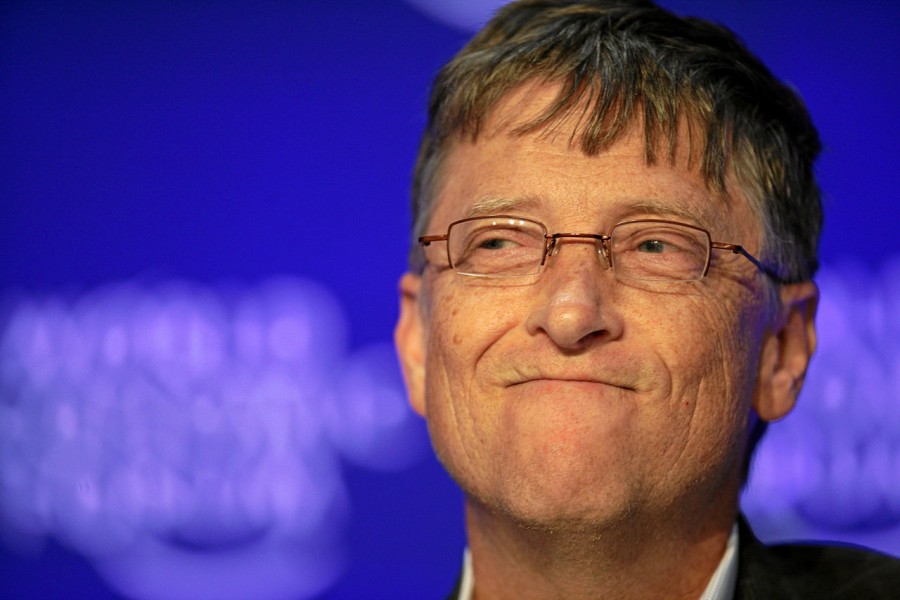Energy Breakthrough Coalition
In a surprising turn of events, Microsoft co-founder and billionaire philanthropist Bill Gates has started a new multibillion dollar initiative – The Energy Breakthrough Coalition (EBC). Drawing on membership from government agencies, tech CEOs, and fellow billionaires such as Mark Zuckerberg and his wife Priscilla Chan (Facebook), Jack Ma (Alibaba), Jeff Bezos (Amazon), and Meg Whitman (HP), the group is in position to create the largest private coalition the world has seen so far. With a goal of funding research and development of zero-carbon energy sources, the coalition promises to “Invest Early, Invest Broadly, Invest Boldly, Invest Wisely, and Invest Together.” Bill Gates himself has pledged to offer $2 billion of his own funds to meet this goal, stating that “we need innovation that gives us energy that’s cheaper than today’s hydrocarbon energy, that has zero CO2 emissions, and that’s as reliable as today’s overall energy system.”
For the rest of the coalition, the goal remains less clear. There is no specific fundraising goal for member nations or individuals, and the financial structure has yet to be clarified. Many have criticized the coalition for rushing to unveil at the climate conference in Paris last December, as there is still little to no information surfacing about their plans. Despite the large announcement and media buzz, the EBC isn’t expecting to make any investments until late 2016 at best. Bill Gates, however, seems to have made a head start.
Investor and chairman of TerraPower, Gates has been helping the Washington based company turn depleted uranium into a new source of nuclear power since 2006. Though wind, solar, and hydro will all be important sources of energy in the future, Bill Gates is quick to note the limitations of each. Solar and wind sources are extremely intermittent and are currently only economical in some locations (making distributing the collected energy difficult,) and hydro has very little room to grow in the US. Looking to energy sources that could provide the most amount of power consistently, he turned to nuclear. One of the principle benefits of developing nuclear plants that run off of depleted rather than enriched uranium is the cost. In the U.S. alone, 700,000 metric tons of the waste has been tossed out by nuclear plants, enough to power our fleet for 750 years. Furthermore, using depleted uranium as a fuel source removes the need for enrichment plants – eliminating the threat (at least for now) of developing bombs with the material. This would allow countries outside the U.S. to begin pursuing nuclear programs without the global fear of WMD development. Lastly, it is a much safer fuel source than enriched uranium, and only stays hot for a couple hundred years instead of thousands, making disposal much cheaper.
Yet the investment doesn’t stop there. Along with help from the EBC, Gates hopes to speed up R&D in solar chemical technology, solar paints, and flow-batteries to increase the reliability of solar power. Though he’s invested in clean energy before through Cascade Investment LLC, this new coalition is a marked change in the billionaire’s policy, stemming in part from his belief that the current solutions being debated won’t be enough. By 2050, the CEO claims we’ll be using 50% more energy globally. According to him, current plans to switch to low-carbon sources like natural gas will not lower emissions enough to prevent a rise in average global temperatures to 2 C above pre-industrial levels. When asked why the free market isn’t developing new forms of energy fast enough, the technological titan said that “Well, there’s no fortune to be made. Even if you have a new energy source that costs the same as today’s and emits no CO2, it will be uncertain compared with what’s tried-and-true and already operating at unbelievable scale and has gotten through all the regulatory problems, like ‘Okay, what do you do with coal ash?’ and ‘How do you guarantee something is safe?’ Without a substantial carbon tax, there’s no incentive for innovators or plant buyers to switch.”
The solution? Billions of investment dollars going into various alternative energy sources, which is the whole point of the EBC. Aside from his coalition’s investments, Gates is also hoping for a doubling or even a tripling of the current US R&D energy budget (as a baseline, we spent $5 billion last year). While many might see the government as inept, he claims that the money is actually spent very efficiently, and that the private sector very rarely invests in energy, which makes sense when analyzed. With new forms of energy, often times the original investors don’t see much money because of how long it takes to set up infrastructure – and how expensive it is upfront to develop the new energy sources. When asked on where the U.S. government would find the money, Gates added that a “few-percent tax on all of energy consumption, or … the general revenue” could pay for the extra 5-13 billion dollars annually. In a statement on his optimism for the future, Bill Gates concluded, “The only reason I’m optimistic about this problem is because of innovation. And innovation is a very uncertain process. For all I know, even if we don’t up the R&D, 10 years from now some guy will invent something and it’ll take care of this thing. I don’t think that’s very likely, but nobody has a predictor function of innovation—which is weird, because the whole modern economy and our lifestyles are an accumulation of innovations. So I want to tilt the odds in our favor by driving innovation at an unnaturally high pace, or more than its current business-as-usual course. I see that as the only thing. I want to call up India someday and say, ‘Here’s a source of energy that is cheaper than your coal plants, and by the way, from a global-pollution and local-pollution point of view, it’s also better.’”
It’s still too soon to tell whether or not the Energy Breakthrough Coalition will reach their goals, but the outlook remains hopeful for 28 of the most powerful private individuals in the world. Just recently, China’s government teamed up with the previously mentioned TerraPower to develop cleaner, safer forms of nuclear power generation and “swap notes.” As more governments get involved, the chances of transitioning to zero-carbon energy sources become less of a pipedream and more of a real possibility.

Hi! You must be really bored if you're reading this, but here we go. My name is Sebastian Lloret and I'm a Senior at Air Academy this year. I speak English,...









Jenny Beth Maynard • Mar 16, 2016 at 10:22 am
Great article, Sebastian!
Tali Valentine • Mar 16, 2016 at 10:18 am
I’m glad Bill Gates is making things happen for such an important issue. great article!
Emily Olson • Mar 16, 2016 at 10:10 am
Great article! Interesting to hear about this new coalition and its potential for the future.